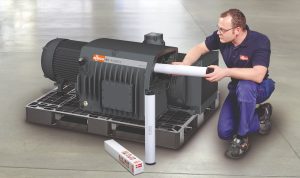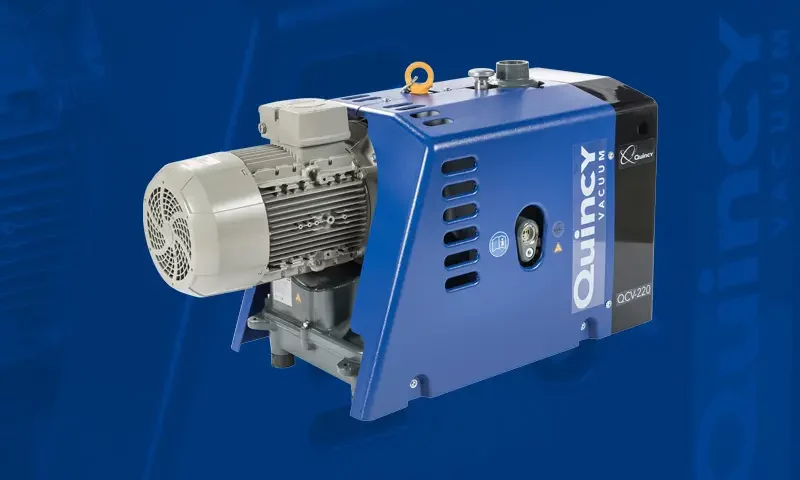Introduction
Vacuum pumps are essential devices in numerous industries, from manufacturing and laboratory research to food processing and pharmaceuticals. These pumps maintain the right atmospheric conditions by creating a vacuum to control pressure in systems. However, despite their crucial role, vacuum pumps often go unnoticed until they fail. This is where the importance of vacuum pump servicing comes into play. Proper maintenance and regular servicing can significantly extend the life of a vacuum pump, ensuring that it continues to operate at optimal performance levels.
Understanding the cycles of reliability in vacuum pump servicing can help businesses prevent costly repairs, minimize downtime, and maximize efficiency. This article will explore why vacuum pump servicing is the lifeline of performance and how regular care can ensure smooth and efficient operations for years.
What Is a Vacuum Pump, and Why Is It Important?
A vacuum pump is a mechanical device designed to remove air and gases from a sealed container or system, creating a vacuum environment. These pumps are commonly used in applications like:
- Industrial manufacturing: To create a vacuum that aids in packaging, filtration, and drying processes.
- Research laboratories: To maintain specific pressure conditions during experiments.
- Pharmaceuticals: For packaging and maintaining sterile environments.
- Food packaging: To preserve food by removing air and preventing spoilage.
While these pumps are designed to be highly durable, their efficiency relies heavily on proper maintenance and servicing. A neglected pump can lose its efficiency over time, resulting in reduced performance, increased energy consumption, or complete breakdowns that could lead to costly repairs and operational disruptions.
The Importance of Vacuum Pump Servicing

The performance and lifespan of a vacuum pump are directly related to how well it is maintained. Regular servicing ensures that the pump operates smoothly and reliably over extended periods. Here are some reasons why servicing is so critical:
1. Enhanced Efficiency and Performance
Vacuum pumps work best when they are regularly cleaned, lubricated, and inspected for wear and tear. Servicing keeps the pump’s components in top condition, minimizing the risk of unexpected failures. A well-maintained pump operates more efficiently, consuming less energy and providing better overall performance. In contrast, an unattended pump may experience a gradual decline in efficiency, which can lead to performance issues and increased operational costs.
2. Extended Lifespan of Equipment
Like any machinery, vacuum pumps have a limited lifespan. However, proper maintenance can significantly extend that lifespan. Regular servicing ensures that parts such as seals, bearings, and oil levels are checked and replaced when necessary. This proactive approach can prevent the need for premature pump replacement, saving businesses money in the long run.
3. Prevention of Costly Breakdowns
One of the biggest advantages of regular vacuum pump servicing is the prevention of costly breakdowns. By identifying potential issues early, such as worn-out seals or deteriorating internal parts, technicians can fix problems before they cause system failures. This reduces the likelihood of sudden breakdowns that might halt production and incur high repair costs.
4. Compliance and Safety
Certain industries, like pharmaceuticals and food processing, have strict regulatory standards for safety and cleanliness. Vacuum pumps used in these fields must meet specific guidelines to ensure product quality and safety. Servicing a vacuum pump regularly ensures that it remains compliant with industry standards, helping to avoid fines or legal issues. Regular inspections also ensure that the system operates safely, reducing the risk of accidents and hazards.
5. Maintaining Optimal Operating Conditions
Vacuum pumps are designed to perform under specific conditions, such as certain temperature ranges, oil levels, and pressures. Regular servicing ensures that the pump is operating within these parameters, avoiding conditions that could lead to overheating or mechanical failure. Keeping the pump in optimal operating conditions helps maintain the overall efficiency of the process it supports, whether it’s manufacturing, research, or food packaging.
Key Steps in Vacuum Pump Servicing
To ensure that a vacuum pump operates efficiently and reliably, servicing should follow a structured process. The typical steps involved in vacuum pump servicing include:
1. Cleaning and Lubrication
Cleaning is one of the most important steps in vacuum pump maintenance. Over time, dirt, dust, and other particles can accumulate inside the pump, leading to decreased efficiency. Technicians clean the pump’s internal components, including filters, valves, and rotors, to ensure smooth operation. Additionally, proper lubrication is critical for reducing friction and wear on moving parts.
2. Oil and Fluid Checks
Many vacuum pumps require oil for lubrication and cooling. Checking and changing the oil regularly is essential to maintaining optimal performance. Oil degradation can lead to poor performance, overheating, and even pump failure. Servicing also involves replacing other fluids, like sealant or cooling fluids, to prevent leaks and system inefficiencies.
3. Inspection of Seals and Gaskets
Seals and gaskets are vital for maintaining the vacuum pressure within the system. Over time, these components can wear out or deteriorate, causing leaks that affect the vacuum pump’s ability to function properly. During servicing, technicians inspect seals and gaskets for any signs of damage and replace them when necessary.
4. Checking for Leaks and Irregularities
Leakage is one of the most common issues faced by vacuum pumps. Servicing includes checking for leaks in the system and fixing any issues. Technicians may use specialized equipment to check for leaks, ensuring that the pump operates efficiently and maintains the necessary pressure levels.
5. Calibration and Performance Testing
After the pump is serviced, it is essential to test its performance to ensure it meets the required specifications. This involves calibrating the pump, testing its vacuum pressure, and ensuring it functions at peak performance. Regular performance tests can detect issues like reduced suction power or irregularities in pressure.
Benefits of Regular Vacuum Pump Servicing
There are several key benefits that businesses and industries can reap by ensuring their vacuum pumps are regularly serviced:
- Reduced Downtime: Proactive servicing helps avoid unexpected failures, ensuring that operations continue smoothly without interruptions.
- Lower Operating Costs: Well-maintained pumps consume less energy and operate more efficiently, which can reduce operational costs.
- Increased Productivity: When pumps are operating at their best, the overall process becomes more efficient, leading to higher output and productivity.
- Long-Term Savings: Regular servicing can save significant amounts of money by preventing expensive repairs and extending the lifespan of vacuum pumps.
Conclusion
In industries where reliability and performance are crucial, vacuum pumps are at the core of many critical processes. Regular vacuum pump servicing is essential for maintaining these systems, ensuring they operate efficiently and reliably. From cleaning and lubrication to oil checks and performance testing, a well-serviced pump can make all the difference in the smooth functioning of a system.
Businesses that invest in routine vacuum pump servicing benefit from reduced downtime, extended equipment lifespan, and cost savings. In today’s fast-paced industrial world, the reliability of vacuum pumps can’t be taken for granted. By committing to regular maintenance, companies can ensure that their vacuum pumps continue to perform at their best, safeguarding productivity and operational efficiency for years to come.












